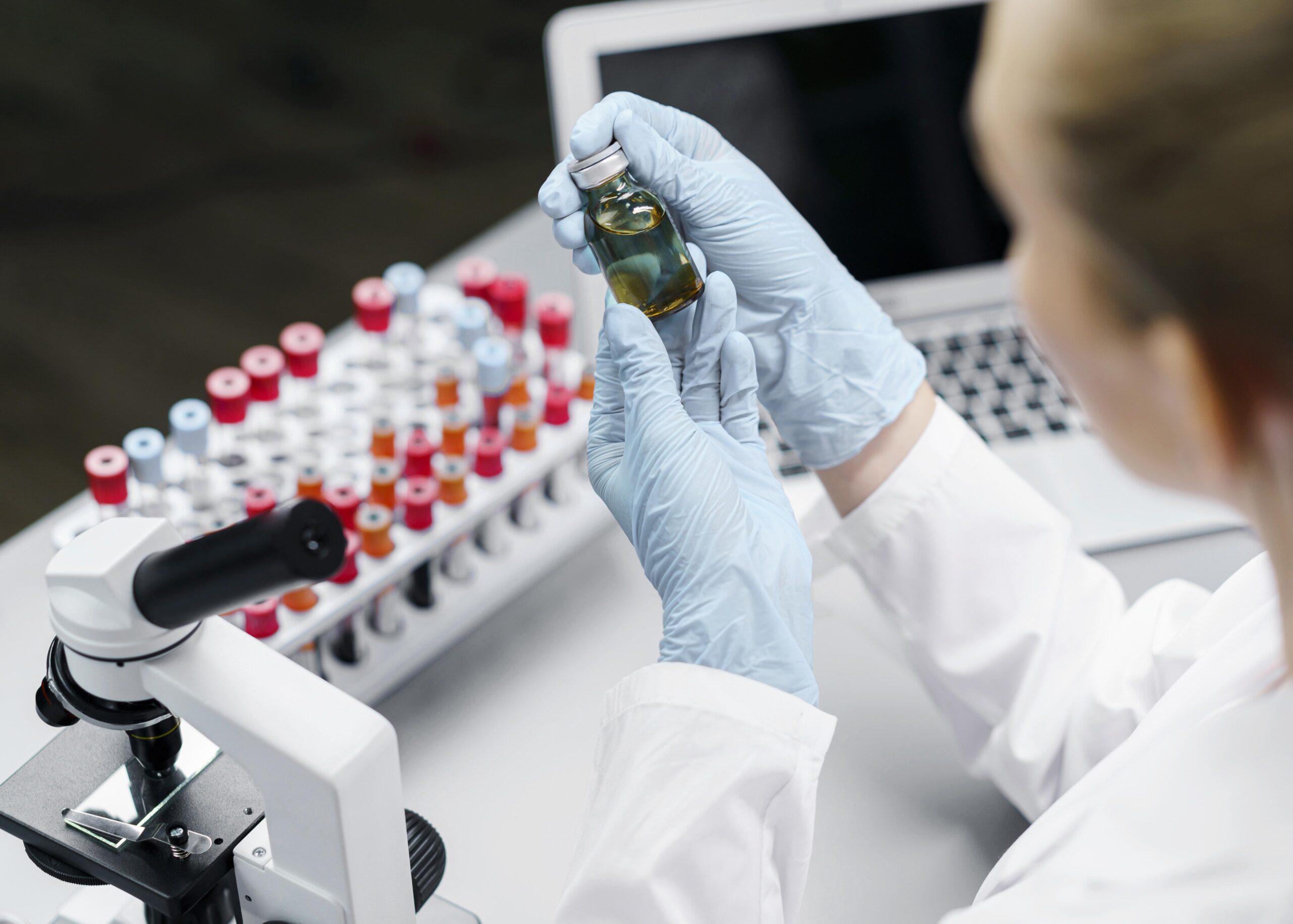The pharmaceutical industry faces increasing pressure to develop drugs faster, reduce costs, and improve patient outcomes. AI-powered drug discovery is revolutionizing how new medicines are identified and developed. By leveraging machine learning, predictive modeling, and generative algorithms, researchers can discover potential drug candidates more efficiently. Consequently, AI is transforming pharmaceutical research into a faster, smarter, and more precise process.
In 2025, AI tools are widely adopted in preclinical studies, compound design, and clinical trial planning. Moreover, AI accelerates the identification of promising molecules while reducing human error. In both the UK and US, pharmaceutical companies are reporting faster development cycles and reduced research expenditure thanks to AI integration.
This guide explores the top AI-powered tools, methods, and breakthroughs reshaping drug discovery in 2025.
Why AI Matters in Drug Discovery
Traditional drug discovery is slow, expensive, and often unsuccessful. On average, developing a new drug can take over a decade and cost billions. AI mitigates these challenges by predicting molecule behavior, identifying targets, and optimizing chemical structures.
Furthermore, AI can analyze vast datasets, including genomics, proteomics, and chemical libraries. Consequently, researchers can discover compounds that might have been overlooked using conventional methods. UK pharmaceutical companies report increased accuracy in early-stage predictions. Similarly, US firms highlight faster identification of high-potential drug candidates.
Additionally, AI assists in personalized medicine by predicting patient-specific responses. This reduces adverse reactions and improves treatment efficacy.
Key AI Techniques in 2025 Drug Discovery
1. Machine Learning for Target Identification
Machine learning algorithms identify biological targets for new drugs by analyzing gene expression, protein interactions, and disease pathways. These predictions accelerate the discovery of compounds with therapeutic potential.
UK researchers praise ML models for uncovering novel cancer targets. US teams use ML to identify rare disease markers. As a result, companies reduce time spent on trial-and-error experimentation.
2. Generative AI for Molecule Design
Generative AI algorithms create novel molecular structures optimized for specific targets. By simulating chemical properties, AI suggests molecules with higher efficacy and lower toxicity.
UK biotech startups report that generative AI shortens compound design from months to weeks. In the US, pharmaceutical giants integrate AI into automated synthesis platforms. Consequently, drug pipelines become more productive and cost-efficient.
3. Predictive Modeling for Clinical Trials
AI predicts clinical trial outcomes by analyzing patient data, previous trial results, and pharmacological interactions. This enables smarter trial design, improving success rates and reducing wasted resources.
UK clinical research organizations use AI to select trial sites and patient cohorts. US hospitals employ AI for adaptive trial monitoring. As a result, clinical trials become safer, faster, and more efficient.
4. Natural Language Processing for Literature Review
NLP tools process vast scientific literature, extracting relevant information and identifying potential drug candidates. This accelerates hypothesis generation and prevents redundant research.
UK researchers report that NLP reduces literature review time by up to 50%. US teams highlight AI’s ability to cross-reference studies across multiple databases, ensuring comprehensive insights.
5. AI-Driven Drug Repurposing
AI can identify existing drugs suitable for new therapeutic uses. By analyzing molecular structures and disease pathways, AI accelerates repurposing strategies, saving time and cost.
UK hospitals have used AI to identify COVID-19 treatment candidates. US biotech firms repurpose oncology drugs for rare diseases. Consequently, life-saving therapies reach patients faster.
Top AI Platforms for Drug Discovery in 2025
1. Atomwise
Atomwise uses deep learning to predict molecular interactions and design novel compounds. Its AI models accelerate early-stage drug discovery with high accuracy.
Key Features:
- Deep learning for compound prediction
- High-throughput screening
- Integration with chemical libraries
- Predictive toxicity analysis
Why It’s One of the Best:
It reduces early-stage drug discovery time dramatically, enabling researchers to prioritize high-potential compounds quickly.
2. Insilico Medicine
Insilico Medicine leverages generative AI to design molecules and predict clinical outcomes. Its platform integrates biology, chemistry, and data analytics for end-to-end drug discovery.
Key Features:
- Generative AI for molecule creation
- Biomarker analysis
- Predictive pharmacology
- Clinical outcome simulation
Why It’s One of the Best:
It combines AI-driven molecule design with predictive analytics, enhancing speed and precision in drug pipelines.
3. Exscientia
Exscientia’s AI platform optimizes compound selection, reducing trial-and-error experimentation. Its AI models focus on target binding affinity and ADMET properties.
Key Features:
- AI-guided compound prioritization
- Target binding prediction
- Toxicity modeling
- Integration with lab automation
Why It’s One of the Best:
Exscientia enables faster identification of safe, effective compounds, cutting preclinical development time significantly.
4. BenevolentAI
BenevolentAI uses AI to analyze biomedical data, discover targets, and suggest drug candidates. Its platform combines NLP, machine learning, and network biology.
Key Features:
- Biomedical knowledge graph
- Target discovery
- AI-driven drug repurposing
- Data integration from multiple sources
Why It’s One of the Best:
It accelerates the discovery of new therapies and repurposes existing drugs effectively.
5. Recursion Pharmaceuticals
Recursion combines AI with experimental biology to identify novel therapeutic pathways. Its AI platform analyzes cell imaging and molecular data for rapid hypothesis testing.
Key Features:
- AI-driven experimental analysis
- High-content imaging
- Drug repurposing
- Automated lab workflows
Why It’s One of the Best:
It merges AI with practical lab workflows, increasing both speed and reliability of discoveries.
Comparison Table: AI Platforms for Drug Discovery in 2025
| Platform | Primary Use | AI Techniques | Best For | UK/US Impact |
|---|---|---|---|---|
| Atomwise | Compound prediction | Deep learning | Early-stage discovery | Faster candidate selection |
| Insilico Medicine | Molecule design | Generative AI | End-to-end pipelines | Predictive analytics |
| Exscientia | Compound optimization | Target affinity modeling | Preclinical efficiency | Reduces trial failures |
| BenevolentAI | Target discovery | NLP + ML | Drug repurposing | Speeds therapy identification |
| Recursion Pharmaceuticals | Experimental analysis | Imaging AI | High-throughput testing | Accelerates lab workflows |
Benefits of AI-Powered Drug Discovery
- Reduced Development Time – AI predicts outcomes faster than traditional methods.
- Cost Efficiency – Minimizes unnecessary experiments and resource expenditure.
- Improved Accuracy – AI models reduce human error in compound selection.
- Enhanced Innovation – AI identifies novel molecules and repurposing opportunities.
- Personalized Medicine – AI helps tailor treatments to patient-specific data.
In the UK and US, these benefits lead to faster therapies reaching patients and more efficient R&D investment.
How Businesses Can Implement AI in Drug Discovery
- Integrate AI platforms with existing research pipelines.
- Invest in diverse datasets and high-quality biomedical data.
- Train staff in AI applications and analysis techniques.
- Apply bias detection to ensure fair and accurate predictions.
- Collaborate with AI-driven biotech firms to accelerate innovation.
Implementing these steps ensures maximal impact from AI adoption.
Final Thoughts
AI-powered drug discovery is redefining pharmaceutical research in 2025. By combining machine learning, generative AI, predictive modeling, and NLP, researchers can accelerate discovery while reducing costs and errors. Furthermore, platforms like Atomwise, Insilico Medicine, and Exscientia provide cutting-edge tools for companies of all sizes.
Ultimately, AI enables faster, smarter, and more precise drug discovery, benefiting both businesses and patients. In the UK, US, and globally, the adoption of AI in pharma represents a major leap toward innovative, efficient, and personalized medicine.





















